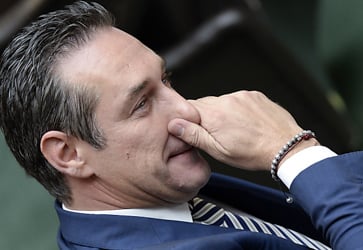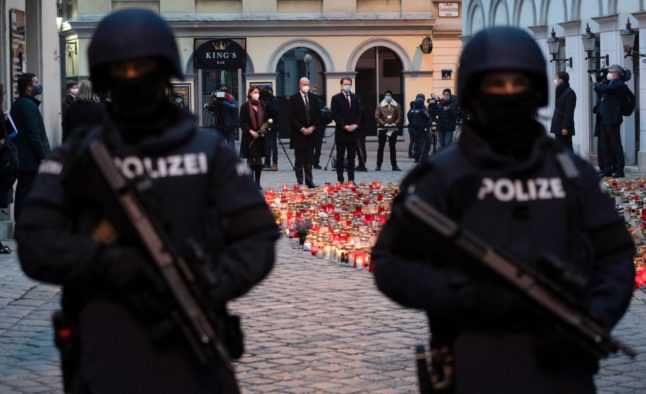FPÖ leader Heinz-Christian Strache and general secretary Herbert Kickl made the comments on Tuesday – with Kickl adding that suspects would have to prove themselves that they had not been fighting with Isis if they wanted to avoid being interned.
There has been much discussion in Austria on boosting security in the wake of the deadly attacks in Paris last week by Islamist gunmen.
Strache said that more than 60 suspected jihadists have already returned from Austria after fighting in Iraq and Syria and that they are “ticking time bombs”. Kickl added that internment would protect the public and said that these “special times and challenges call for special measures”.
They both called for Austrian citizenship to be taken away from anybody who was recruited by Isis, and that the “mercenary clause” in Austria’s citizenship act should also apply to jihadist fighters. It allows Austria to revoke citizenship from anyone who joins the military of a foreign state.
Strache added that he believed the vast majority of Muslims were disgusted by the attacks in Paris and cautioned against a general mistrust of Muslims.
He was critical of Austria’s domestic intelligence agency, the Federal Office for the Protection of the Constitution (BVT), saying he has received repeated death threats for years, yet nothing has been done about it.



 Please whitelist us to continue reading.
Please whitelist us to continue reading.